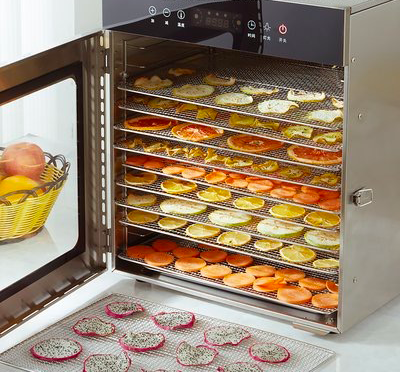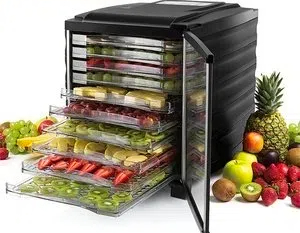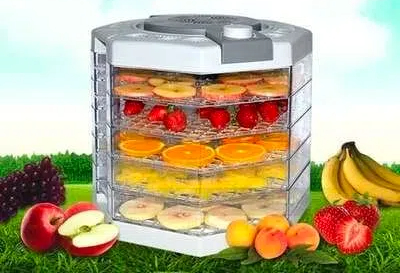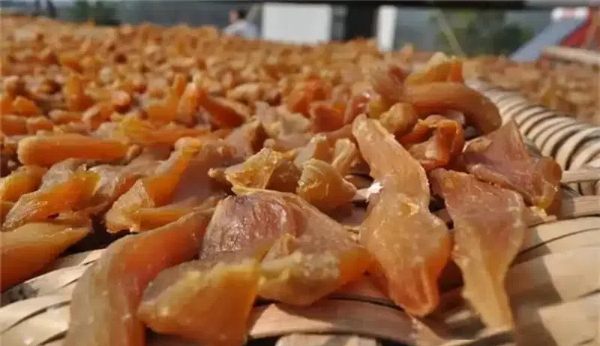
Content Menu
● Introduction
● Understanding Heat Pump Dryers
>> How Heat Pump Dryers Work
● Advantages of Heat Pump Dryers
>> Energy Efficiency
>> Environmentally Friendly
>> Versatility in Food Drying
>> Consistent Quality
>> Reduced Operating Costs
● Applications of Heat Pump Dryers in Various Industries
>> Food Industry
>> Pharmaceutical Industry
>> Agriculture
>> Pet Food Production
● Is a Heat Pump Dryer Worth It?
● Maintenance Requirements for Heat Pump Dryers
● Conclusion
● Related Questions
>> 1. What types of foods can be dried using a heat pump dryer?
>> 2. How does energy consumption compare between heat pump dryers and traditional dryers?
>> 3. What is the average lifespan of a heat pump dryer?
>> 4. Can I use a heat pump dryer for commercial purposes?
>> 5. Are there any maintenance requirements for heat pump dryers?
Introduction
In the world of food processing, drying is an essential method for preserving food and enhancing its shelf life. Among the various drying technologies available, heat pump dryers have emerged as a popular choice for many manufacturers. This article will explore what makes heat pump dryers different, their advantages, and whether investing in one is worth it. We will also delve into the operational aspects, applications in various industries, and maintenance requirements to provide a comprehensive understanding of heat pump dryers.

Understanding Heat Pump Dryers
Heat pump dryers operate on a unique principle that sets them apart from traditional drying methods. Unlike conventional dryers that expel hot air and moisture, heat pump dryers recycle air within the system. They use a refrigerant to absorb heat from the air and transfer it to the drying chamber, creating a closed-loop system that is both energy-efficient and environmentally friendly.
How Heat Pump Dryers Work
1. Heat Absorption: The dryer draws in ambient air, which passes over the evaporator coil where the refrigerant absorbs heat.
2. Heat Transfer: The heated refrigerant then moves to the compressor, increasing its temperature and pressure.
3. Condensation: The hot refrigerant gas passes through the condenser coil, transferring its heat to the air inside the drying chamber while condensing back into a liquid state.
4. Moisture Removal: The moisture from the food evaporates, and the humid air is expelled through a separate vent or recycled back into the system.
5. Cycle Repeats: This process continues until the desired moisture content of the food is achieved.
Advantages of Heat Pump Dryers
Energy Efficiency
One of the most significant benefits of heat pump dryers is their energy efficiency. They consume less energy compared to traditional dryers because they recycle heat instead of generating new heat constantly. This feature makes them an excellent choice for businesses looking to reduce operational costs.
Environmentally Friendly
Heat pump dryers are more environmentally friendly than conventional dryers. By using less energy and reducing greenhouse gas emissions, they contribute to a sustainable approach to food processing. This eco-friendly aspect appeals to consumers who are increasingly concerned about sustainability and environmental impact.
Versatility in Food Drying
Heat pump dryers can handle various types of food products, including fruits, vegetables, herbs, and meats. Their ability to maintain low temperatures while effectively removing moisture makes them suitable for delicate items that require careful handling during the drying process.
For instance:
- Fruits: Heat pump dryers can dry fruits like apples, bananas, and strawberries without compromising their flavor or nutritional value.
- Vegetables: Vegetables such as carrots and bell peppers can be dried efficiently while retaining their color and texture.
- Herbs: Delicate herbs like basil and thyme benefit from the gentle drying process that prevents browning and loss of essential oils.
- Meats: For meat products like jerky, heat pump dryers provide precise temperature control necessary for safe drying without overcooking.
Consistent Quality
The controlled environment within a heat pump dryer ensures consistent drying results. This uniformity helps preserve the nutritional quality and flavor of the food products, making them more appealing to consumers. By maintaining optimal humidity levels and temperatures throughout the drying process, manufacturers can achieve high-quality dried products that meet market standards.
Reduced Operating Costs
While the initial investment in a heat pump dryer may be higher than that of traditional dryers, the long-term savings on energy bills can offset this cost. Additionally, their durability and low maintenance requirements contribute to reduced operating costs over time. Businesses can expect a return on investment within a few years due to these savings.

Applications of Heat Pump Dryers in Various Industries
Food Industry
In the food industry, heat pump dryers are widely used for producing dried fruits, vegetables, herbs, and snacks. Their ability to preserve flavors and nutrients makes them ideal for companies focused on health-conscious consumers. Moreover, as more people seek convenient snack options with longer shelf lives, heat pump-dried products have gained popularity in retail markets.
Pharmaceutical Industry
The pharmaceutical industry also benefits from using heat pump dryers for drying active ingredients and herbal extracts. The precise control over temperature ensures that sensitive compounds remain intact during processing.
Agriculture
Farmers utilize heat pump dryers for drying grains and seeds post-harvest. By reducing moisture content quickly and efficiently, they minimize spoilage risks during storage.
Pet Food Production
In pet food production, heat pump dryers are used to create high-quality dried meat products that retain essential nutrients for animal health. The controlled environment allows manufacturers to produce safe and nutritious pet treats.
Is a Heat Pump Dryer Worth It?
When considering whether "is a heat pump dryer worth it," it's essential to weigh the benefits against your specific needs and circumstances. Here are some factors to consider:
- Initial Investment vs. Long-Term Savings: While heat pump dryers are more expensive upfront, their energy efficiency can lead to significant savings over time.
- Type of Products Being Dried: If you are processing high-value or delicate food items, investing in a heat pump dryer may be worthwhile due to its superior drying capabilities.
- Environmental Impact: For businesses focused on sustainability, choosing a heat pump dryer aligns with eco-friendly practices.
- Production Volume: For larger operations with high production volumes, the efficiency of heat pump dryers can result in substantial cost savings.
Maintenance Requirements for Heat Pump Dryers
Proper maintenance is crucial for ensuring optimal performance and longevity of heat pump dryers. Here are some key maintenance tasks:
1. Regular Cleaning: Clean filters regularly to prevent airflow restrictions that can affect efficiency.
2. Inspect Refrigerant Levels: Ensure refrigerant levels are adequate; low levels can impact performance.
3. Check Seals and Insulation: Inspect door seals and insulation for wear or damage; replacing worn parts helps maintain efficiency.
4. Monitor Temperature Settings: Regularly check temperature settings to ensure they align with product requirements.
5. Professional Servicing: Schedule routine professional servicing at least once a year to address any potential issues before they escalate.
By adhering to these maintenance practices, businesses can maximize their investment in heat pump dryers while ensuring consistent product quality.
Conclusion
In conclusion, heat pump dryers offer numerous advantages that make them an attractive option for food processing businesses. Their energy efficiency, environmental benefits, versatility, consistent quality, and potential for reduced operating costs position them as a valuable investment in modern food drying technology.
Ultimately, whether "is a heat pump dryer worth it" depends on your specific needs and goals as a business owner or operator in the food industry. By carefully considering these factors and understanding how heat pump dryers work, you can make an informed decision that aligns with your operational objectives.

Related Questions
1. What types of foods can be dried using a heat pump dryer?
Heat pump dryers can effectively dry various foods such as fruits (like apples and bananas), vegetables (like carrots and tomatoes), herbs (like basil and thyme), and meats (like jerky).
2. How does energy consumption compare between heat pump dryers and traditional dryers?
Heat pump dryers typically consume significantly less energy than traditional dryers due to their ability to recycle heat within the system.
3. What is the average lifespan of a heat pump dryer?
The average lifespan of a well-maintained heat pump dryer ranges from 10 to 15 years, depending on usage and maintenance practices.
4. Can I use a heat pump dryer for commercial purposes?
Yes, heat pump dryers are suitable for both residential and commercial applications, making them ideal for businesses involved in food processing.
5. Are there any maintenance requirements for heat pump dryers?
Heat pump dryers require regular maintenance such as cleaning filters and checking refrigerant levels to ensure optimal performance and longevity.












